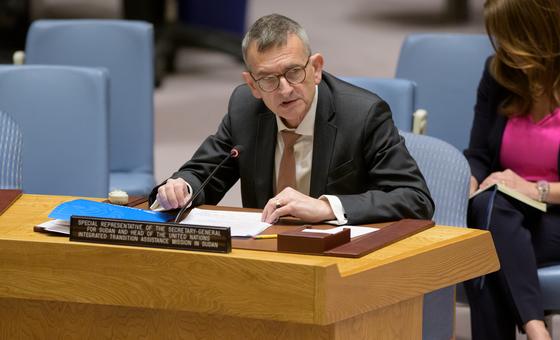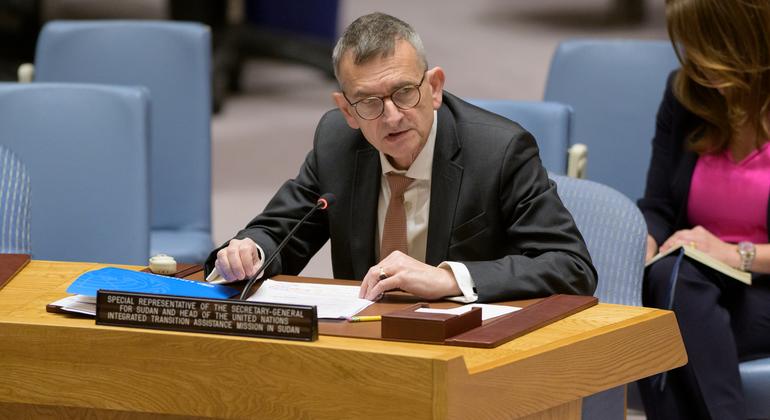
“Today, we are the closest we have been to a solution, although challenges remain,” said Volker Perthes, the Secretary-General’s Special Representative for Sudan and head of the UN’s transition assistance mission in the country, known as UNITAMS.
Landmark agreement
Mr. Perthes recalled his last briefing to the Council, on 8 December, when he welcomed the signing of a critical political framework agreement that month.
The landmark agreement followed months of negotiations in the wake of an October 2021 military coup, which derailed the transition to civilian rule that had been underway following the ouster of Sudan’s longtime President, Omar al-Bashir, in April 2019.
In the months since, ongoing dialogue between the signatories has ushered in a new transitional period in Sudan.
Inclusive ‘workshops’
A number of contentious issues are currently being discussed in a sensitive consultative process.
Those include security sector reform and the merger of armed forces, transitional justice, and implementation of the 2020 Juba Peace Agreement signed by the transitional government and several armed groups in Sudan’s Darfur region.
The Special Representative said today that a series of “workshops” – each gathering hundreds of Sudanese men and women, and representing a broad social, professional, and political spectrum – have already taken place, with the facilitation of a Trilateral Mechanism comprising the African Union (AU), the Intergovernmental Authority on Development (IGAD) and the UN.
“Each workshop created space for public and transparent discussions among Sudanese citizens from all walks of life, including societal groups who often feel voiceless,” said Mr. Perthes.
Crucial breakthroughs
Already, many areas of consensus have emerged from the consultative process.
In the workshop focused on matters impacting the east of the country, for example, participants agreed on a forum that will pave the way for future reconciliation in the region, marking a crucial breakthrough.
The national conference on transitional justice, which concluded on Monday, was instrumental in advancing a common understanding of accountability and reconciliation.
Noting that matters of security sector reform and the reintegration of armed forces are among the most sensitive elements being discussed, Mr. Perthes said military and civilian leaders recently signed a joint paper on the language and substance of security sector reform, which will allow the Trilateral Mechanism to launch its final workshop by the end of this week.
‘Time is essential’
While praising the process, the Special Representative nevertheless sounded alarm over rising tensions between the Sudanese army and the Rapid Support Forces in recent weeks.
Calling for urgent de-escalation, he added that civilian parties will now have to swiftly finalize discussions on the mechanisms to select a Prime Minister and form a government.
“Time is essential,” he said, describing the scale of the challenges facing Sudan, like any new government, as “enormous.”
Humanitarian needs in the country are at record levels, with some 15.8 million people – about a third of the population – requiring humanitarian assistance, and rising hunger a serious concern.



